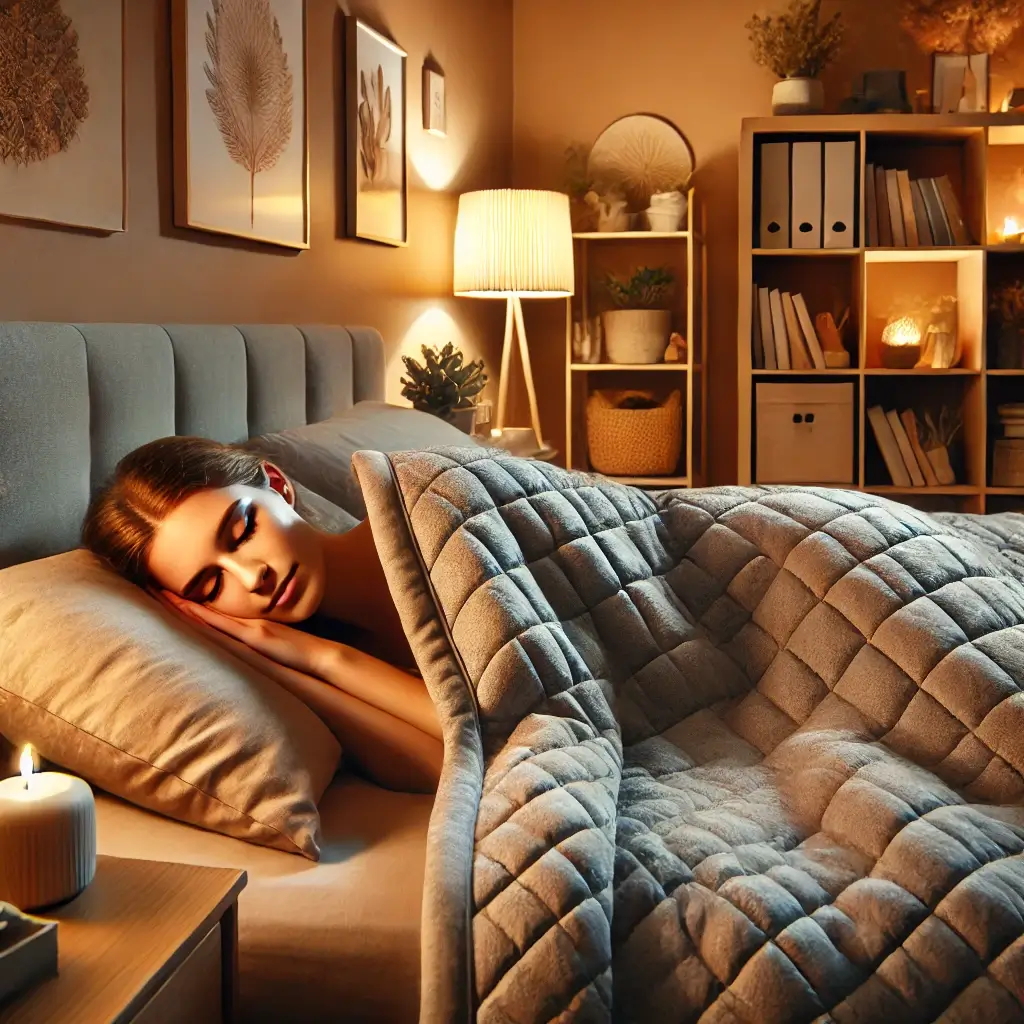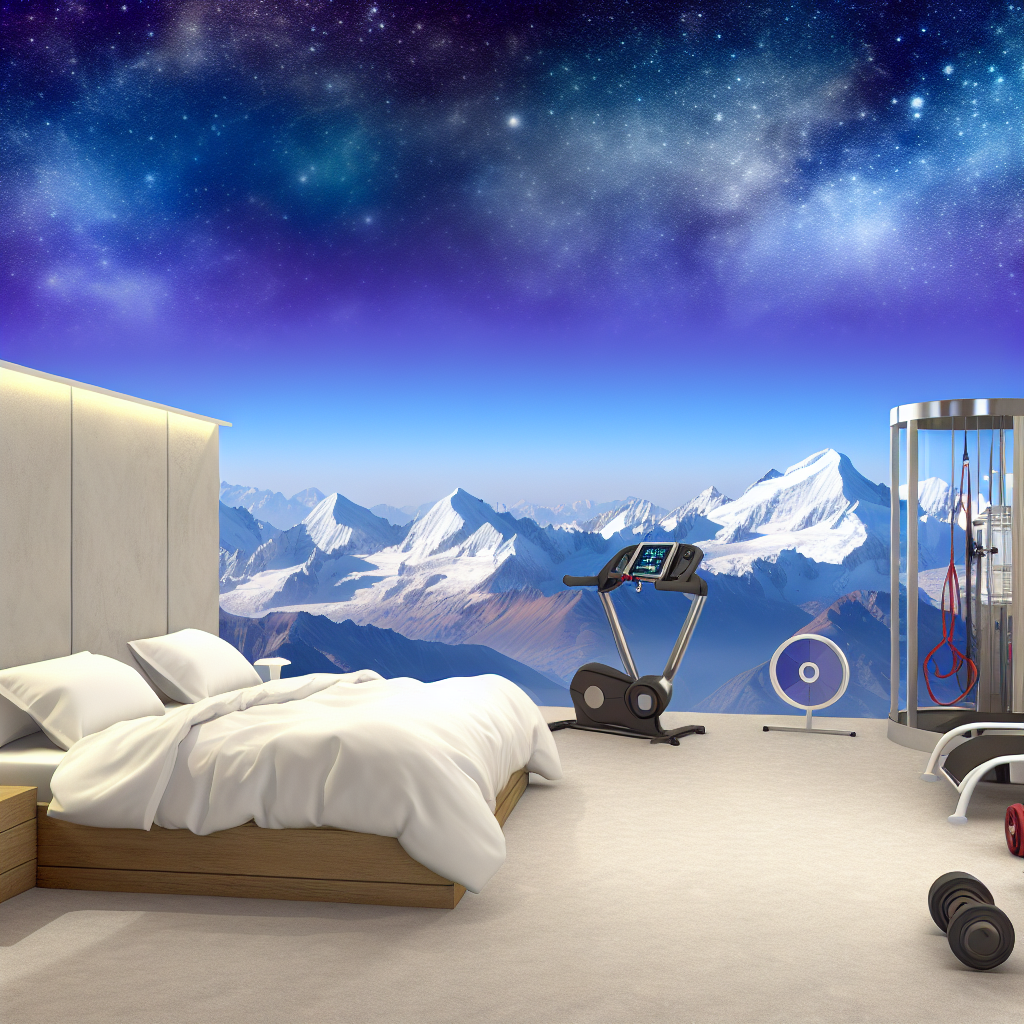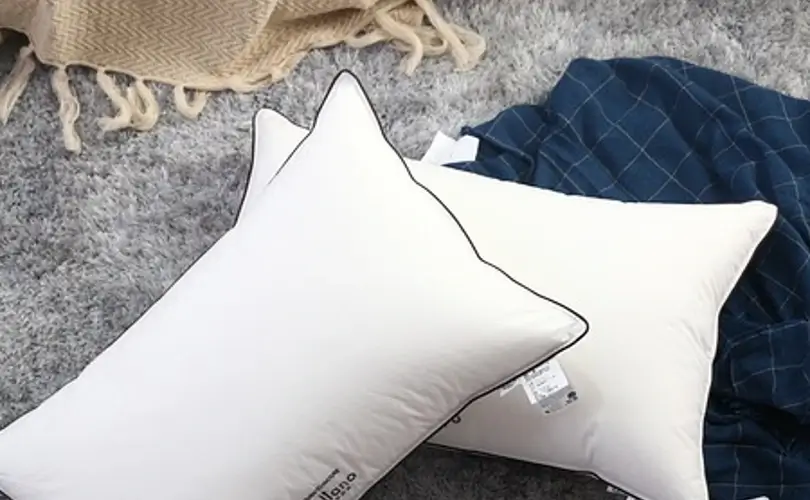Understanding Weighted Blankets and Deep Pressure Stimulation
In the ever-evolving world of sleep aids, weighted blankets have captured public interest for their potential to enhance rest, alleviate anxiety, and offer therapeutic support. Unlike regular blankets, these specially designed products contain evenly distributed weights made of glass beads or pellets, creating a sensation known as deep pressure stimulation (DPS). This therapeutic touch mimics the calming effect of a gentle hug, activating the body’s natural relaxation mechanisms.
The Science Behind Deep Pressure Stimulation
The science of DPS is rooted in its ability to stimulate the parasympathetic nervous system response, the part of the nervous system responsible for promoting a state of calm. By reducing the stress hormone cortisol and increasing the release of serotonin and melatonin, weighted blankets may create a physical and emotional environment conducive to restorative sleep and stress relief. What began as a tool primarily used in clinical settings for conditions such as autism spectrum disorder (ASD) and attention-deficit/hyperactivity disorder (ADHD) has now found broader applications, gaining popularity among the general population.
Research and Scientific Evidence
The appeal of weighted blankets is grounded in their potential benefits for both mental and physical well-being. Let’s examine the research underpinning these claims:
Sleep Quality Improvements Through Clinical Studies
A 2020 study published in PLOS One explored the effects of weighted blankets on adults with insomnia. This randomized controlled trial for weighted blanket effectiveness demonstrated significant improvements in sleep quality for participants using weighted blankets compared to those with lighter alternatives. Metrics such as sleep duration, sleep efficiency, and nighttime awakenings were notably better among weighted blanket users, underscoring DPS’s ability to promote relaxation and facilitate deeper sleep.
Anxiety and Stress Management Benefits
Anxiety can significantly disrupt sleep, creating a vicious cycle of sleeplessness and heightened worry. In a 2014 study published in Occupational Therapy in Mental Health, researchers evaluated weighted blankets’ effects on adults with anxiety disorders. Participants reported marked reductions in their anxiety symptoms, attributed to the blankets’ calming sensory input. This study highlighted DPS’s role in activating the body’s “rest and digest” response, counteracting the fight-or-flight state common in anxiety disorders.
Benefits for Neurodiverse Individuals
Weighted blankets have long been used in clinical settings for individuals with ASD, ADHD, and sensory processing disorders. The deep pressure therapy for neurodevelopmental conditions provides sensory input that can help reduce overstimulation, improve focus, and promote a sense of calm. Although broader studies are needed, existing research and anecdotal evidence point to their potential as a non-pharmacological tool for improving daily functioning in neurodiverse individuals.
Understanding Deep Pressure Stimulation’s Physical Impact
The neurochemical impact of DPS further solidifies its effectiveness. By stimulating the vagus nerve, DPS encourages the release of serotonin, a neurotransmitter linked to happiness and well-being. The simultaneous reduction of cortisol levels for stress management helps mitigate the physiological effects of stress, allowing the body to enter a more relaxed state. These combined effects create an optimal environment for sleep and relaxation, explaining the broader popularity of weighted blankets.
Essential Considerations for Weighted Blanket Selection
While the benefits of weighted blankets are compelling, they are not universally suitable. Here are some important factors to consider: Personal Comfort, Medical Conditions, Weight Selection, and Safety. Choose a blanket with evenly distributed filling and breathable fabrics to avoid overheating and ensure even pressure distribution.
Final Thoughts on Weighted Blankets
Weighted blankets offer a promising, evidence-based solution for improving sleep and reducing anxiety. By leveraging the principles of deep pressure stimulation, they provide a natural, non-invasive method for relaxation and sleep improvement, making them an attractive option for individuals seeking alternatives to medications. Current research supports their use in conditions like insomnia, anxiety, and sensory processing disorders, but further studies are needed to understand their long-term efficacy and broader applications.
References
McCubbin, J. A., Cameron, M. E., & Joo, S. Y. (2020). Effectiveness of weighted blankets on sleep quality in adults with insomnia: A randomized controlled trial. PLOS One, 15(4), e0234084.
Lederman, S. S., & Schwartz, D. A. (2014). Weighted blankets for adults with anxiety disorders: A preliminary randomized controlled trial. Occupational Therapy in Mental Health, 30(1), 70-84.
Miglis, M. E., & James, S. P. (2018). Weighted blankets in the treatment of anxiety disorders: A review of the literature. The Journal of Clinical Psychiatry.





